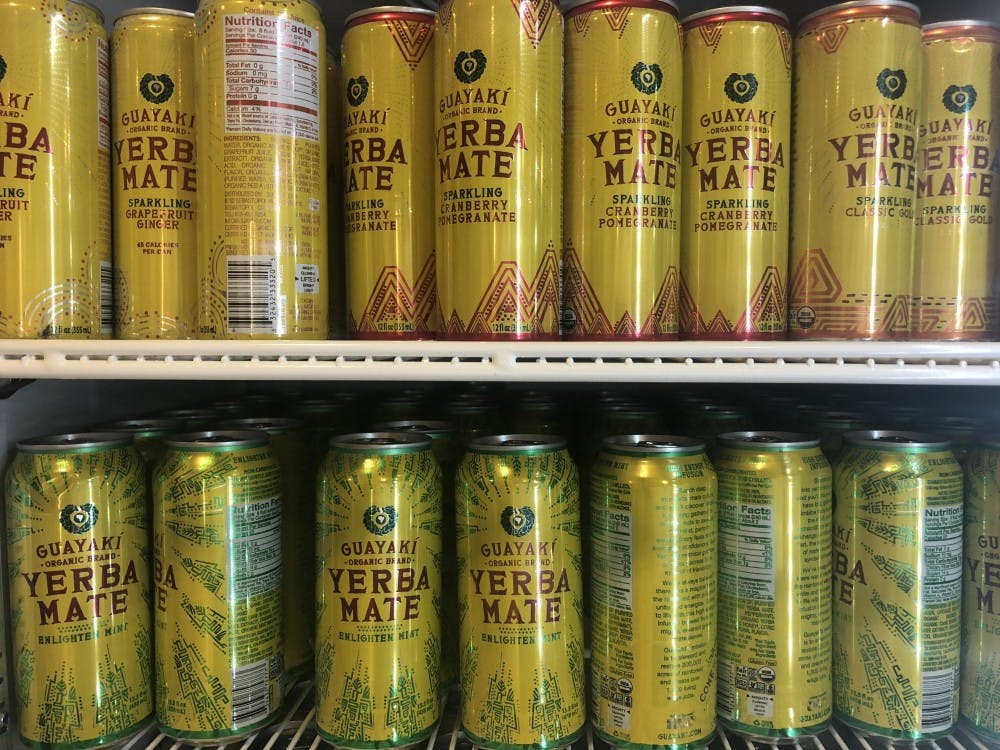Yerba mate beverages are popular among University of Richmond students, but some studies show that the South American caffeinated tea can cause detrimental side effects.
Side effects include certain types of cancers when consumed over long periods of time and in combination with smoking.
“I found that some studies indicated that people who drink large amounts of yerba mate over prolonged periods may have an increased risk of some types of cancers such as mouth, esophagus and lung,” said UR Registered Dietician Karen Hensley. “Smoking in combination with mate seems to increase the risk. Yerba mate contains polycyclic aromatic hydrocarbons, which are known to be carcinogenic, similar to grilled meats.
Mate is brewed from the naturally caffeinated leaves of the Amazonian tree Ilex paraguariensis, which contains several nutrients beneficial to human health. With more healing compounds than green tea, yerba mate comprises 24 vitamins and minerals, 15 amino acids and high levels of polyphenols, a micronutrient filled with abundant antioxidants.
The drink’s medicinal properties have been said to relieve fatigue, ease depression, treat headaches and even promote weight loss.
“It is difficult to find a plant in any area of the world equal to mate in nutritional value,” according to the Paris Scientific Society and Pasteur Institute. Mate contains “practically all of the vitamins necessary to sustain life,” according to the institute.
The remedial characteristics of yerba mate appeal to students who want to avoid the jittery, crashing effect of coffee.
But some studies have shown that when consumed in large amounts over extensive periods of time, yerba mate can lead to adverse health effects, although this impact is unlikely.
"More investigation has to be done about the safety and side effects of yerba mate,” Hensley said.
Many of these studies are conducted in South American countries such as Uruguay, Paraguay and Argentina, where mate is the national drink. This prevalence of cancer could be due to South America’s dissimilar consumption patterns. Many people in these areas of South America consume copious amounts of mate daily, at scorching temperatures. Drinking mate at such hot temperatures increases the absorption of carcinogenic PAHs, similar to that of smoking tobacco.
“The first point to note is that the link between yerba mate and cancer is based on epidemiological studies, which are known to be unreliable," said Richard Bruehl, vice president of operations for Guayaki, UR’s yerba mate supplier. "This is due in large part to environmental factors, cultural practices and varying medical support systems. Some of the key factors not taken into consideration are water quality, quality of the yerba mate, consumption patterns, processing methods and temperature of water used.”
Enjoy what you're reading?
Signup for our newsletter
“For the general public that’s drinking it on campus, yerba mate is not a problem," Hensley said. "Drink it in moderation. It does have sugar in it, but so does some coffee, depending on what you get.”
Yerba mate contains around 150 milligrams of caffeine and 28 grams of sugar in each 16-fluid ounce can. It is important to drink it in moderation, because that much caffeine and sugar can negatively alter one’s sleep cycle and cause increased nervousness, restlessness and heart rate, according to WebMD.
Contact news writer Jordan Daniel at jordan.daniel@richmond.edu
Support independent student media
You can make a tax-deductible donation by clicking the button below, which takes you to our secure PayPal account. The page is set up to receive contributions in whatever amount you designate. We look forward to using the money we raise to further our mission of providing honest and accurate information to students, faculty, staff, alumni and others in the general public.
Donate Now



